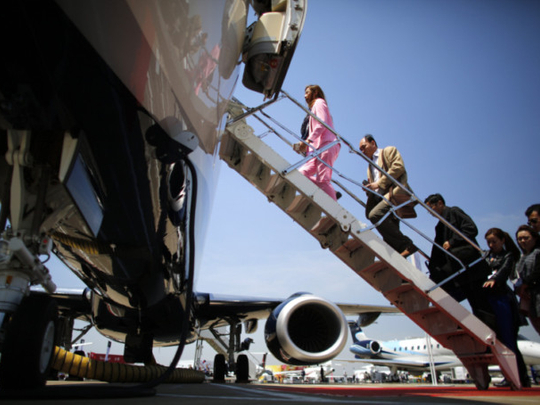
Following the disappearance of Malaysia Airlines flight MH370, travel insurance firms around the world have been reporting a rise in purchases. In the UAE, a country where travel insurance purchasing rates are lower in comparison to Europe, agencies have also been reporting a rise.
“There is growth in the UAE over the past few years,” says Manu Mehrotra, General Manager, Al Tayer Travel Agency. “However, we are of the view that there is more that needs to be done to highlight and increase the uptake, ideally to 100 per cent, as no one should travel without adequate insurance,” he adds.
Cem Pozam, a 33-year-old Turkish resident of Dubai, travels frequently to Asia on “mystery shopping” assignments for airlines and hotels. He says the disappearance of the Malaysian Airlines flight has encouraged him to look into a variety of life and travel insurance options. “A tragedy like this makes you think about your own safety while travelling,” he says. “I’ve looked into different policies and found that standard travel insurance is geared more toward medical emergencies for accidents and injuries while abroad.”
Increased risks
Pozam says although these travel policies claim to include life insurance, there are so many grey areas about the circumstances of death that taking personal life insurance is a far better option for regular travellers. “Insurance isn’t a nice thing to think about, but you definitely increase your risks when you travel frequently,” he says.
There are around ten major insurance companies in the UAE that offer travel insurance plans, yet the uptake is very low. According to research conducted by Zurich Insurance in 2013, more than half of UAE residents have never bought travel insurance. Of the UAE residents surveyed, 58 per cent indicated that they had never bought travel insurance, while 32 per cent said they did so on occasions. Buying travel insurance in the UAE is still in its early stages. Currently purchase is driven by visa requirements rather than the risk perception.
For travellers going to the US, Canada, the UK and Australia, it is mandatory to have travel insurance. However, for people travelling to South East Asia or the Middle East it is not. In December 2013, the government made health insurance compulsory for visitors and residents. Visitors entering Dubai are being charged a minimum of Dh45 for a travel insurance certificate without which a visit visa is not issued.
Compensation issues
Travel insurance covers flight delays, baggage loss and medical expenses and can be bought as a single or multi-trip cover. While the schemes are primarily for emergency medical cover, they also offer legal assistance, advance of bail bond, cancellation or curtailment, delayed departure after 12 hours, delayed baggage, loss of passport and personal accidents. Some even cover terrorism and adventure sport extension. “Generally insurance should cover medical as well as temporary disruption, including baggage loss, flight delays, lost documents, etc. More so when mandated by countries which impose that cover be obtained prior to travel,” says Mehrotra.
Most premium packages cover hostage and hijack, search and rescue situations. Zurich Travel Insurance offers terrorism extension as an optional addition to the premium package for an additional 30 per cent for Gold and Silver packages. In the case of hijacking, “under the Gold package customers receive $250 (about Dh918) per hour up to a maximum of $10,000 while the silver package is $125 per hour up to a maximum of $5,000,” states the company.
The website Medic8 says: “There are claims assessors who are specially trained to deal with compensation claims following a hijacking. They will have a deep level of understanding regarding the outcome of this type of an incident and are able to provide support and advice. They will understand the psychological distress caused by such an incident, one example being post traumatic stress disorder, which can have long-term effects.”
In a case like the MH370 flight, the extent of coverage is more complicated and compensation depends on what type of insurance coverage is purchased. Several companies in the UAE offer policies covering unforeseen incidents such as hijacking. However, policies often do not cover war and acts of aggression. Experts advise consumers to ask specifically about these situations and what sort of cover may apply.
“Incidents and subsequent insurance aspects and compensation in events as the MH370 are governed by various other conventions and are much more complex in nature, and cannot be directly correlated with common travel insurance policies. There are many other factors which will have a bearing on outcomes such as hijacking cover,” says Mehrotra.
Malaysia Airlines flight MH370 took off from Kuala Lumpur on March 8 and lost contact with air traffic controllers while en route to Beijing. Search for the airline and passengers is still on.








